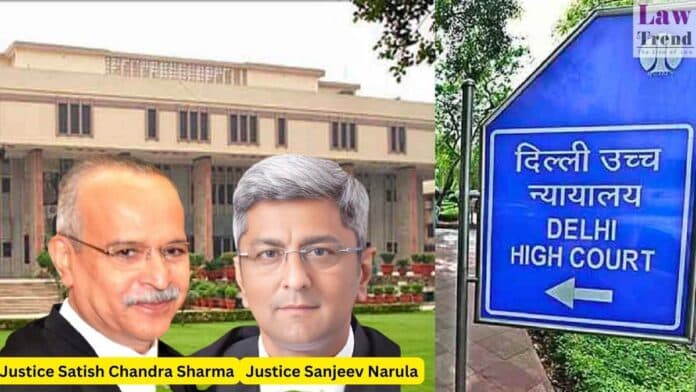The Delhi High Court has asked the Centre and the AAP government to streamline the process for availing medical facilities under various health welfare schemes, while taking note of the constraints faced by people from economically weaker sections wanting to enjoy such benefits.
The high court constituted a seven-member committee headed by Delhi chief secretary to iron out the defects in the current system.
“The procedure required for availing free medical treatment must be streamlined, including various surgeries, as well as surgeries for implants/devices and to put in place a single-window mechanism with designated nodal officers at each hospital in Delhi,” a bench of Chief Justice Satish Chandra Sharma and Justice Sanjeev Narula said.
The court noted the Delhi government has formulated Delhi Arogya Kosh and Delhi Arogya Nidhi schemes, and these initiatives are complemented by ancillary programmes aimed at providing medical services to the residents of the city.
Similarly, the central government has launched schemes like the Rashtriya Arogya Nidhi and the Health Minister’s Discretionary Grant.
“Nonetheless, we have been apprised of the constraints faced by individuals from economically weaker sections (EWS) when attempting to avail benefits of the scheme. These constraints manifest at various stages: during treatment, submission of applications for financial assistance, procurement of quotations concerning implants, procedure for disbursing amounts, and finally, while undergoing medical procedures including surgeries,” the bench said.
Advocate T Singhdev, who was appointed amicus curiae in the case to assist the court, submitted a memorandum encapsulating the problems faced by indigent patients striving to secure financial aid.
He said it can be seen that the process of securing financial assistance under Delhi Arogya Kosh scheme is extremely troublesome for patients since they are made to run from pillar to post to obtain various certificates from authorities even before they could submit their application to the Patient Welfare Cell of the Directorate of Health Services.
Taking into account the procedural impediments, the court said the process for availing medical facilities under these schemes should be significantly streamlined and made easily accessible.
Besides the chief secretary, the committee will comprise members nominated by the Union Ministry of Health and Family Welfare, Principal Secretary of the Delhi government, Commissioner of Municipal Corporation of Delhi and the National Informatics Centre.
The terms of reference of the committee include ensuring maintenance of a dynamic information list of drugs by hospitals, implants and devices on the website of the departments concerned which may be revised frequently so those seeking treatment are aware of their availability in real time. This may also help citizens donate drugs / implants / devices as per the need of each hospital.
The ministries of Health and Family Welfare at both levels (Centre and state) as well as the MCD should create revolving funds to cater to the recurring expenditure of patients suffering from chronic, rare, debilitating or lethal diseases, including all necessary forms of treatment such as surgeries and procurement of implants and devices, it said.
“Funds/grants could be made available in the hospitals concerned expeditiously on the basis of demand. This will benefit hospitals established in the peripheral areas in reference with their unique issues and also hospitals established in the well habited areas in respect of their unique issues,” the court said about the terms of reference of the committee.
The court said the procedure for securing financial assistance under different schemes must be made less cumbersome so the public could comprehend it with little assistance, and instructions must be displayed prominently and clearly in language they are able to understand. The hospital must become patient-friendly and accessible to the society at large, it said.
“Emphasis must be on processing the applications quickly. All forms must be available in regional languages and the requirement of accompanying documents must be kept minimal, keeping in mind that these are for medical emergencies,” it said.
Also Read
The court said the committee may suggest specific methodology under which patients belonging to EWS category may continue to receive benefits of treatment / drugs till financial assistance is disbursed, and this may also entail stop-gap arrangements at various hospitals to mitigate the pain and suffering till final treatment or surgery is done.
The court asked the committee to furnish its report with recommendations for implementing the terms of reference before the next hearing on November 16.
Initially, a petition was filed before a single judge by an individual who was denied hip and knee replacement surgeries by the All India Institute of Medical Sciences due to his inability to bear the cost of treatment. The hospital later agreed to perform the surgeries and the man sought withdrawal of his plea.
However, the single judge noted that although the petitioner expressed a desire to withdraw the petition, the facts of the case provoke crucial issues about accessibility of quality medical care for patients from marginalised sections of society, and reclassified the plea as a public interest litigation to be dealt with by a division bench.




